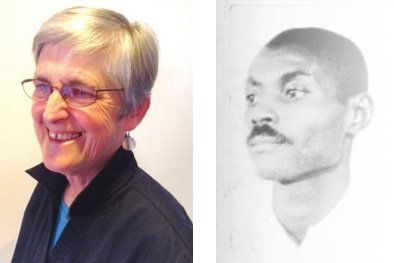
Horrific murders, a legal lynching and her father’s oral history draws Melanie Morrison, an Okemos-based author and civil rights activist, back in time to the Jim Crow South. It’s there she discovers what set her father on a path toward social justice.
“Murder on Shades Mountain: The Legal Lynching of Willie Peterson and the Struggle for Justice in Jim Crow Birmingham” tells the story of a 1931 murder of two Birmingham women and the attempted murder of another.
It also addresses the subsequent arrest, prosecution and incarceration of the male African-American suspect, Willie Peterson.
Through Morrison’s revelation of the facts, Peterson is revealed to be innocent — though anyone with a lick of sense can see that.
In fact, the first attempt to convict Peterson resulted in a hung jury — unimaginable in the Jim Crow South — because the evidence was so slim. A second jury would find Peterson guilty only after inadmissible discussion of sexual assault in the two murders was revealed.
Morrison first heard about the case from her father as a young child. Truman A. Morrison, the founder and pastor of Edgewood United Church in East Lansing, was instrumental in the ‘60s movement to desegregate East Lansing housing.
Morrison had grown up in Birmingham and dated the younger sister of the surviving victim. It was the legal lynching of Peterson that helped develop his passion for racial justice. This passion carried down to his daughter, who is also a minister and directs Allies for Change, an organization which provides anti-oppression education, training and resources.
Tom Wolfe, Jimmy Breslin and Pete Hamill led the New Journalism movement in New York in the 1960s and ‘70s. Their counterpart, Joan Didion, set the standard on the West Coast with her slim 1968 volume, “Slouching Towards Bethlehem.” Members of the City Pulse Book Club, which is open to all, will tackle it at 7 p.m. Thursday, May 3, at Schuler Books & Music in the Meridian Mall. The club, which meets monthly, is spending the entire year reading books about 1968 or published that year.
Using newspaper accounts and a 300-page grand jury transcript, Melanie Morrison discovers not only a classic case of legal lynching, but also some truths about her father’s memory of what actually happened more than 75 years ago. In her afterword to the book, Morrison writes a posthumous letter to her father detailing her discoveries and proffering questions she can no longer ask.
“I saw things corroborated that my father told me as an oral story and other things he hadn’t mentioned,” Morrison said.
Several things surprised Morrison as she dug deeper into the case.
As law enforcement officials and vigilantes began looking for the killer, “a reign of terror was released,” Morrison said.
“It became very important for me to tell not just Willie Peterson’s story, but about real people who had been arrested, terrorized and killed as the result of the investigation.”
One witness to the terror, Angelo Herndon, a communist organizer working in Birmingham, was one of the first to be arrested for the murder. Herndon later wrote a book about his time organizing in the South for the Communist Party. In one chapter, he estimated at least 70 black men and women were killed around the time of the investigation.
In searching for a killer, local police brought more than 100 potential suspects forward for the sole survivor to identify as the killer. Ultimately, she identified Peterson while he was walking on the street. Peterson would later be shot several times while awaiting trial by the survivor’s brother, who never spent a night in jail and was found innocent by reasons of insanity. He would later become a local district attorney.
Morrison said she was helped not only by traditional newspapers, but also the digitized black newspapers from across the country that covered the trial. Records of actions were found in the digitized files of the NAACP which worked to defend Peterson. Morrison’s description of the role played by the Communist Party alone is worth a book of its own.
“I felt compelled to tell the story because of my experiences in public school and college. We learned a little bit about slavery, but it was a white-centric narrative with nothing about Reconstruction and white supremacy resulting in Jim Crow,” Morrison said. “There is a rich history of black-led movements for racial justice not being taught in the schools.”
In the afterword, she is especially critical of how schools still use Harper Lee’s “To Kill a Mockingbird” to tell the story of the Jim Crow South. Morrison recalls first hearing about the Peterson case from her father while she was reading the book in school.
“It is a white story,” she said. Morrison said two things stood out in her investigation.
“The most moving was the persistent courage of Willie Peterson’s neighbors, family and fellow church members and fellow co-workers to testify on his behalf at great personal risk,” she said. “Reflection on how much we have changed is not enough. It weighs on me that Willie Peterson’s name has never been cleared.”
Peterson’s death sentence was commuted, but he remained in prison where he died from complications from tuberculosis.
Morrison’s book is an ultimate tribute to a man who is seldom mentioned in the Civil Rights Movement, but was a true civil rights hero and who despite torture and mental cruelty always proclaimed his innocence.
Book discussions with Melanie Morrison
April 12, 6 p.m. East Lansing Public Library and April 15, 1:30 p.m. Salus Center, 624 E. Michigan Ave., Lansing The events are free and books will be available.
Support City Pulse - Donate Today!
Comments
No comments on this item Please log in to comment by clicking here